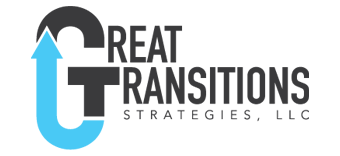You heard what she said but you still did not fully grasp the gravity of her feelings. Your coworker kept telling you, you said you got it but you really did not. Then finally two days later in a moment it came to you. “Now I understand, why that was so important to her. How could I have not understood?”
I have had many moments where I am not working on anything in particular and I have an aha moment. A total realization on why something worked or a crystallization and understanding of a concept I did not previously grasp. What causes that to happen?
It is reflection and processing. Our minds are an incredible organ that we cannot shut off. It is continually working even when we do not realize it. Constantly processing information, emotions, and feelings in the background. That is where the learning really occurs. That is why reflection is such an important part of leadership development. Reflection allows you to learn and understand.
What are your reflection habits? When and how do you take the time to reflect on your leadership development? Suppose you were more deliberate in your reflection process, what difference would that make? High performing organizations and individuals have incorporated deliberate reflection into their DNA.
Examples:
Sports teams and individual athletes have video and statistics completely integrated into their performance models. At the college level and above, video is part of the daily routine. Football teams grade each player using video. The players meet with coaches to reflect and evaluate their performance. All to improve performance.
In military aviation every flight is meticulously debriefed and evaluated to get maximum learning. I have personally been in debriefs that took longer than the flights. Other members of the military conduct debriefings and submit lessons learned from training and real-world operations. A deliberate and active form of reflection.
What high performing team have you been part of? Was reflection part of the learning model? I will bet that it was. The reflection process for high performers has two components:
- It is deliberate and practiced regularly
- It is a conversation built on a positive relationship
Deliberate and practiced means it is a routine. The positivity of the relationship is critical. We do not listen well in a strained relationship. Remember the goal is better performance, you are listening and working together to improve.
Great you say, that is when I have someone to work with. What about self-reflection?
I contend you need the same two elements; a regular practice and a conversation built on a positive relationship.
Now let me ask you, who is helping you self-reflect on your performance as a leader most often? For me it is the gremlin in my head providing the reflection. You know who I am talking about. The gremlin is the source of that ongoing conversation.
What is the relationship you have with your gremlin? Is it positive, do you listen intently, is it an honest conversation? Often the conversation is dishonest, demanding, and overly critical. Honest self-reflection is a skill required to develop as a leader and we have to train our gremlin(s) to be helpful.
Here are some thoughts and considerations on self-reflection and gremlin(s) training:
- Build self-reflection into your daily routine.
- Be deliberate after learning events or activities (books, podcasts, presentations, challenges)
- Develop a framework such as standard questions
- What did I learn from this? What worked well? What did not? What do I need to start doing? Keep doing? Stop doing?
- Capture your learning
- A short journal entry, running list, goal setting
- Evaluate your performance against a realistic criterion
- Look behind you to see how far you have come, not just how far you have to go
- Set goals in small increments; 0.5% better each day, is over 175% a year.
- Talk to yourself the way you would talk to someone else
- Remember this conversation is building a relationship with yourself
This type of self-reflective thought has the potential to generate frequent moments of learning, from mild reinforcement to revelations and breakthroughs. Turn your gremlin into your advocate and grow as a leader.






